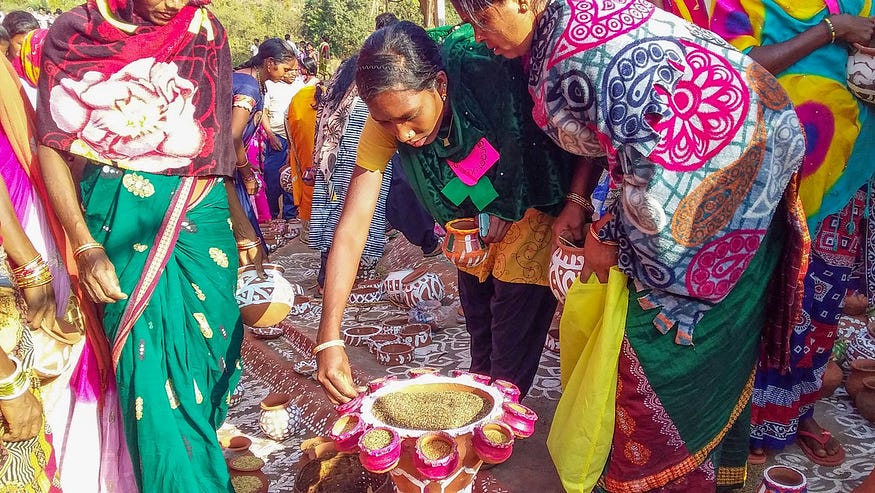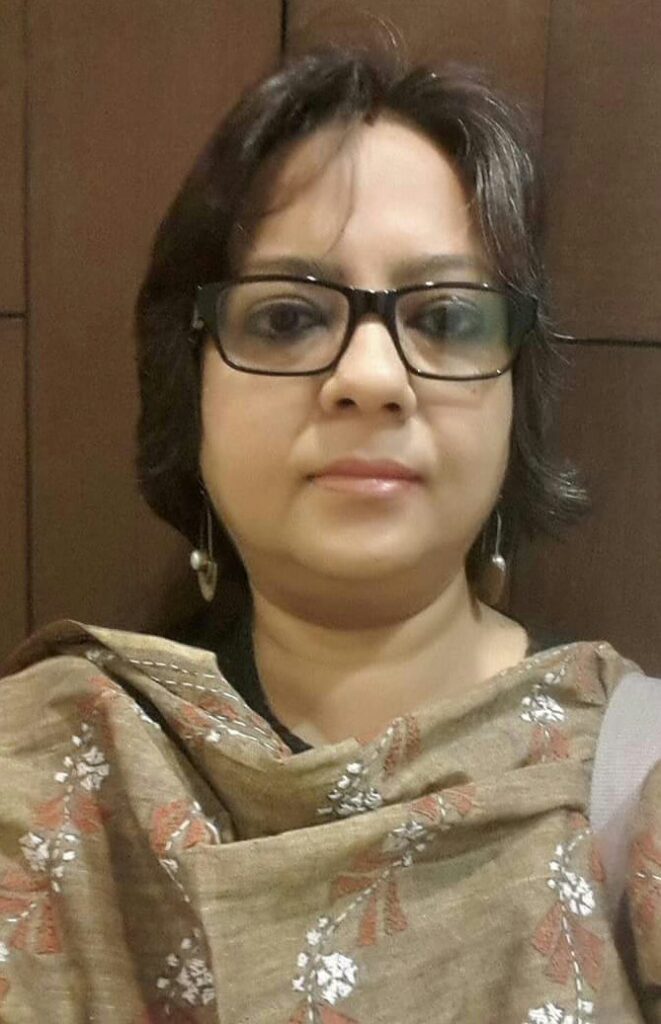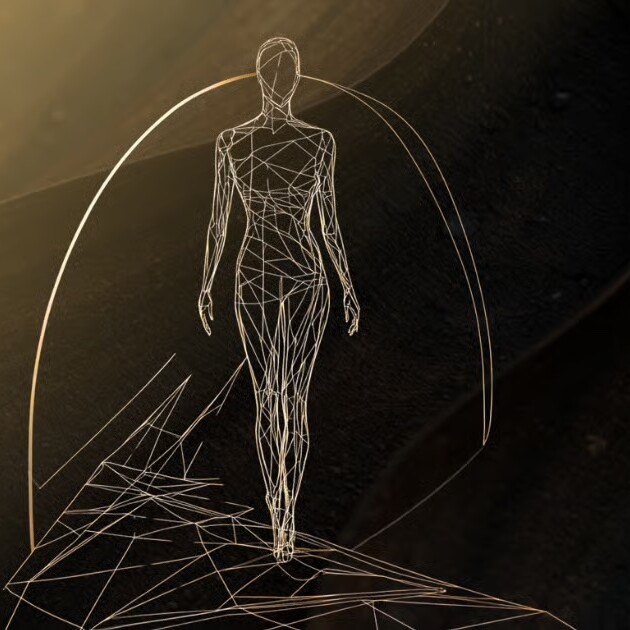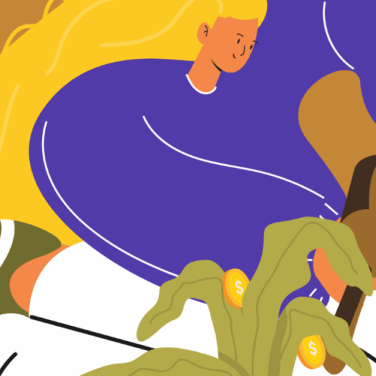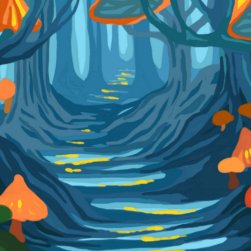Creating narratives that are harbingers of life-affirming paradigm shifts
This is an extraordinary time full of vital, transformative movements that could not be foreseen. It’s also a nightmarish time. Full engagement requires the ability to perceive both. ~Rebecca Solnit quoted in Brainpickings
We live in a profoundly damaged world, a wounded and a bleeding planet. The ‘great acceleration’ of the Anthropocene founded on the human hubris of controlling and subduing nature, infinite growth driven by endless extraction and ecocide, and a deeply colonial and racist mindset has brought us to this cusp of simultaneous systems collapse — of economies, polities, societies, communities, ethics, values, and religions.
Polarization, fracture, and fragmentation are manifesting in all their destructive dimensions within and between nation-states. The ostensibly boundary-less, ubiquitously connected globalized world is erecting boundaries within national borders — between its own citizens, driving neighbors against neighbors, turning citizens into vigilantes. Growing injustice and inequality coupled with social, racial, communal, and religious rifts are tearing apart the fabric of most nations.
The richest 1% owns half the world’s wealth. Billionaires wealth rose an approximate of $10.2 trillion amid Covid crisis. “While the full impact of the COVID-19 pandemic is unknown, the World Bank estimates that an additional 88 million to 115 million people will fall into extreme poverty in 2020, with the total rising to as many as 150 million by 2021.” Mega-corporations like Amazon, owned by the richest man in the world, are known for its bruising work environment. Rich and powerful nations are blocking waivers for Covid-19 vaccine patent rights thus denying vaccination to millions in the face of a global pandemic. Global North nations are destroying less powerful nations for control over natural resources, cheap labor, and land. The cult of consumerism, accumulation, and excess are devastating the planet. Fundamentalism and authoritarianism are on the rise across the globe. All for the sake of power, profit, and privilege.
Is it any wonder that this pathologically unequal world is falling to pieces? The enforcement of deregulated capitalism with its associate free market ideologies have crashed the world’s systems — economically and ecologically. The imposition of structural adjustment programs on the global South countries have effectively destroyed the development that they had sought to make post colonialism.
A combination of austerity, privatization, and deregulation have destroyed the basic infrastructure in most countries. Corporations, freed of all regulations and responsibilities, are recklessly destroying the environment, scouring the planet for the most exploitable labor and that last drop of oil with ever more invasive and extractive technology. The world is literally going to hell in a handbasket.

It is easy to imagine that the world is being run by a handful of megalomaniacs and plutocrats. The underlying narratives of capitalism, free-market, globalization, and growth have created the fertile conditions and space for the rise of such totalitarianism. One wonders what happened to the story of development and progress for all. However, the truth is that the world fell prey to the dangers of a single story.
Since 1980, the global economy has grown by 380%, but the number of people living in poverty on less than $5 (£3.20) a day has increased by more than 1.1 billion. That’s 17 times the population of Britain. So much for the trickle-down effect. ~Jason Hickel, Forget ‘developing’ poor countries, it’s time to ‘de-develop’ rich countries, 2015
If we peel off the layers and go back in history, we can trace the roots of the narrative running the show for the past 500 years to imperialism and colonialism, Enlightenment and the Industrial Revolution, rise of capitalism and the free market. Today’s ‘universalized’ and homogenized story of development and growth was a western concoction imposed on the rest of the world as a part of the imperialist project of colonization and continued through globalization and neo-colonialism. The rest of humanity was forced to forfeit and forget other ways of being on and relating with this planet and all sentient beings.
However, as our civilization faces imminent collapse and the impending existential crisis of the sixth mass extinction, it is becoming clear that we must reclaim, re-member, and revive those lost and abandoned ways. For centuries, the indigenous people have been turned into fugitives in their own land in the name of development, rendered homeless in the name of growth, brutally persecuted when they claimed what was rightfully theirs.
Even as we teeter on the edge of unprecedented ecological disaster, it is worth remembering that while comprising less than 5% of the world’s population, indigenous people protect 80% of global biodiversity. One of the earliest forest conservation movement in India took place in 1973. Called the Chipko Movement, it saw primarily women hugging the trees to prevent them from being felled for logging. Sunderlal Bahuguna, a Gandhian activist, brought this nonviolent movement to the world’s attention with the rallying cry, “Ecology is the permanent economy.” This was 1973.
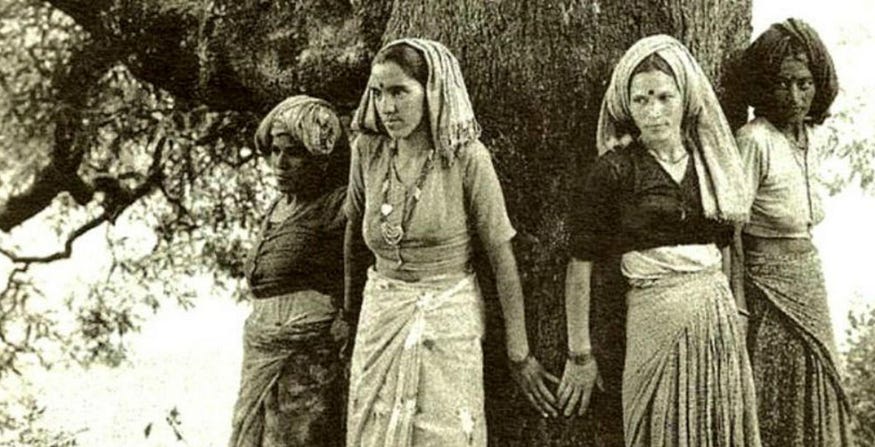
The single unifying issue facing Indigenous Peoples everywhere is how to protect their territories and stop the “asset stripping” that robs them of their livelihoods and the foundation of their cultures. Without land and control of their assets, Indigenous Peoples are destined to remain the world’s poorest communities — with the worst health, highest mortality rate and shortest life span. ~The Indigenous Movement
We know that life thrives on diversity. Any forest ecosystem is a teeming hub of myriad visible and invisible life forms from magnificent old trees to the minutest of fungi to the mycorrhizal networks beneath the soil. Yet, the narrative of Eurocentric development has continuously sought to eliminate all forms of diversity — from different cosmologies to unique ontologies and epistemologies, from diverse forests and farms to different economies. It constantly tried to subsume varied ways of being, seeing, and living into its mega-narrative of western universalism, ironing out all uniqueness through brute force.
The hegemonic narrative emanating from a mechanistic, dualistic, utilitarian, hierarchical, and colonial view of life, enforced a distorted and superficial homogeneity in the name of efficiency, productivity, and development on all of civilization. It also imposed a fabricated classification of humanity that impacts billions to this day. The sole aim was and is the accumulation of power and capital by a few at the cost of billions.
Under this industrializing force, thriving forests gave way to mega-monocultures for the sake of agribusiness. Homes of critically endangered wildlife became vast palm oil plantations. Supply chains expanded across the globe stretching from China to Walmart’s doors. Local ecosystems and economies (in the global South) were brutally destroyed to open up international markets in the name of free trade, rendering millions homeless and helpless thus adding to the pool of cheap and disposable labor. Indigenous tribes were rendered homeless as their land was expropriated for mining, logging, and other ills.
The economic, political, and social systems originating from this narrative literally went about exploiting, expropriating, and extinguishing life. Because the founding narrative never valued the web of life with all its abundance and breathtaking beauty, interdependence and inherent intelligence, there were/are no qualms about snuffing it out.
The mindboggling annihilation we have wrought in the name of development is truly unbelievable. The saddest part is that it is not within human capacity to bring back extinct species, to rewild the coral reefs in all their magnificence and multihued diversity, to prevent wildfires from consuming forests and wildlife. We are ‘gambling with what is irreplaceable and precious,’ to use Naomi Klein’s words. But nature is resilient, generative, and autopoietic. Minus human-made destruction, life will assert herself. But for that, we need to let go of our old narrative and embrace a narrative that is regenerative and pluriversal. A narrative that pays homage to life and thus becomes that catalyst and cornerstone for creating structures and systems that are conducive to life.
The globetrotting pandemic ripped apart the façade of progress and development to reveal the papered-over brokenness of our current planetary systems; it also underscored our ineradicable interconnectedness and interdependence with all sentient beings on this planet. However, this seems to have gone unnoticed by those in power. They are once again busy trying to use the crisis to push through policies and programs that people would not accept during normal times.
Naomi Klein in The Shock Doctrine: “In moments of crisis, people are willing to hand over a great deal of power to anyone who claims to have a magic cure — whether the crisis is a financial meltdown or… a terrorist attack.” Those at the helm of world affairs today are being driven by their basest instincts geared towards profit, privilege, and power for a few. We are experiencing a global crisis of leadership, a crisis of conscience, and a crisis of consciousness. And these multiple crises are manifested in the economic, political, and social structures and processes at play today.
However, ordinary people are no longer buying the narrative. From students to farmers, from housewives to indigenous tribal members, they are out in the streets demanding their right to a just, meaningful, and dignified life. The past decade has, therefore, also become the decade of movements. From #OccupyWallStreet to #ExtinctionRebellion, from #FarmersProtest to #FridaysForFuture, from #BlackLivesMatter to #DemocracyforMyanmar. These lists of movements from 2020–2021 are telling a story of an emerging civilizational order vastly different from the old one. They are showing us that the old narrative of European male hegemony and the privilege of power is dead. Those benefitting from it will use every arsenal at their disposal to maintain the status quo, but the war is already lost.
We are experiencing the collapse of the current narrative in the face of global crises. And when narratives collapse, revolutions happen, new shoots of hope arise, new stories are created. And a new world order emerges. It is in our hands to reimagine our civilizational narrative. To throw off the yoke of the old order with its narrow Western worldview and co-create a pluriversal narrative — one that encompasses many cosmologies, ontologies, and epistemologies. A cultural meta-narrative that recognizes and respects the innumerable ways of being, seeing, sensing, and knowing of humans and other-than-humans. One that resonates with the astoundingly diverse and stunningly beautiful web of life. It is time to reimagine new narratives for a civilizational evolution that is life-sustaining.
The new narrative is already arising from the grassroots, from the fringes, and the margins. They are harbingers of the voices of people who have been marginalized and delegitimized for centuries — the blacks, the indigenous, the women, the farmers, the students, the activists, the transgenders. The bearers of this new narrative are the rebels, renegades, radicals, and revolutionaries — they are the visionaries and the imaginal cells of a future taking shape in the present.
They are the ones the status quo is most afraid of. No wonder the privileged are doing all in their power to quell, suppress, and oppress the rising tides of discontent and truth. From incarceration to outright killing, every gruesome and chilling action is being taken to keep the truth from bursting through the carefully erected, centuries-old veneers of deception, duplicity, and deceit.
Those in power are afraid. They have too much to lose after centuries of accumulation and grabbing. They cannot let go with grace. As Otto Scharmer wrote: “The image of the Ever Given — needing to unload its cargo in order to get unstuck — represents in a microcosm the collective impediment that rich countries and Western civilization embody today: holding on to stuff and refusing to share with those who are on the other side of the social divide.” This applies to all those who are benefitting from the status quo.
“By refusing to risk its way of life, by rejecting the idea that the powerful might have to sacrifice for the common good, it clings to a set of social arrangements that allow it to monopolize progress and then give symbolic scraps to the forsaken — many of whom wouldn’t need the scraps if the society were working right.” ~Anand Giridharadas, Winners Take All: The Elite Charade of Changing the World
Joanna Macy spoke about this period as the Great Turning — a transformational moment in human history — when the foundations of the Industrial Growth Society would finally totter and crumble, and a new Life Sustaining Society will arise. However, this new society will not be ushered in willingly by those benefitting from the old one. The shift will need to be envisioned and co-created by communities and collectives of individuals from all walks of life staking a claim to this planet and standing up for the right of all sentient beings.
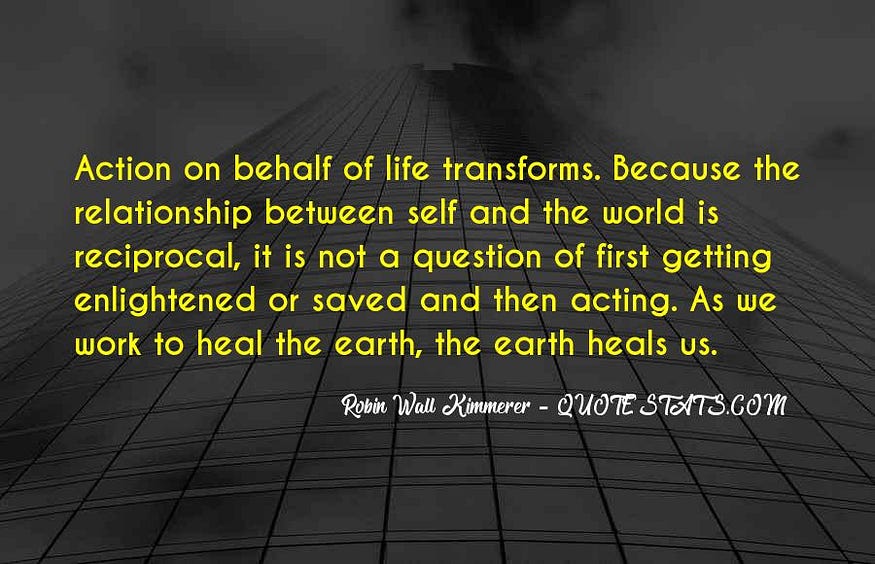
Our civilization’s evolution has been a spiral of emergence from one level of convergence and complexity to the next order of evolutionary complexity. And with each evolutionary step, the fundamental narratives have shifted. The shifting of narratives has led to cultural and paradigm shifts — in perceptions, worldviews, beliefs, values, and norms — that have always challenged the status quo, often drawing the wrath of the powerful and the privileged.
Darwinism and evolutionary biology challenged religious believers; Galileo’s heliocentrism (Earth revolving around the sun) and Copernicanism (Earth rotating around the sun) dismantled the belief that the earth was the center of the universe; Mahatma Gandhi’s non-violence movement as a strategy for social change shifted the trajectory of British imperialism in India. Thus, narratives are extremely powerful. They can make or break nations, countries, societies, and our planet.
What if the new narrative we co-create is founded on the bedrock of life-affirming values and actions?
In this liminal space between stories where one world is dying and the other is struggling to be born, lie the potential and power to reimagine and rejuvenate. The power to break away from the hegemony of universalism and co-create a new narrative that counteracts all that is noxious in our old story. A narrative founded on the principles of Interbeing, Pluriversality, and Abundance need to be told.
Stories create our worlds and worldviews. They help us to make meaning in a seemingly random and arbitrary universe. Without stories to lean into, we would not be able to cohere with intentionality and collective energy. Stories become the basis of cultures; thus, new narratives have the power to shift cultures, and cultural forces have the power to drive political and systemic changes.
For good or bad — narratives shape and give rise to norms, values, structures, and processes, which when repeated often enough become the culture — of nations, societies, communities, organizations, groups, or teams. After a point, the underlying narrative is forgotten, and the culture becomes “the way things are done here”. These then go on to create the bedrock of societies, polities, economies, and ethics.
Hence, if we hope to bring about transformative, paradigm shifting change, we must replace the old stories with new ones embodying the beliefs, values, norms, and ethics of a regenerative future. We must move away from narratives legitimizing extraction, exploitation, expropriation, ecocide, and racism to ones that are regenerative and life-affirming. It is not enough to just highlight what needs to change. It is essential to collectively co-create a narrative that embodies ‘a world where many worlds fit.’
It is also crucial to define what such a narrative CANNOT be before we can define what it will be:
1. It can’t be a single, universalized narrative.
2. It can’t be about human centrality and male supremacy.
3. It can’t be a decontextualized model of development imposed on all.
4. It can’t legitimize the vested interests of a few individuals and nations.
5. It can’t marginalize or delegitimize any cosmology and ontology.
The new narrative reifying a regenerative future must be:
1. Contextual and pluriversal, and yet profoundly global.
2. Based on the principles of ‘reparative futures.’
3. Centered on decolonizing the future and the imagination.
4. Focused on generativity and thrivability, not on infinite growth on a finite planet.
5. Founded on our inherent and indelible interconnectedness with the web of life.
~What narratives do we want to tell now that will allow us to hold space for and co-create a regenerative future?
~What will be the edifices and mainstays of these narratives?
~What kind of leaders do we need to become amplifiers and stewards of these narratives?
~What do we, as individuals and collectives, need to do to actualize and manifest the regenerative future, ‘a world that works for all’?
Article originally published here in The Age of Emergence
You can read the first two parts of the article here:
Reimagining a Regenerative Future – Part 1
Reimagining a Regenerative Future – Part 2
Sahana Chattopadhyay — speaker, writer, facilitator, and story-seeker. A scribe to an emerging era, trying to make sense from chaos and collapse, holding space for fearless dialogues, and catalyzing transformation towards a pluriversal planet. For more of her work: https://linktr.ee/sahana2802
PLEASE DONATE to help Network Weaver continue in it’s mission to offer free support and resources to networks worldwide.
Related Posts
April 22, 2025


